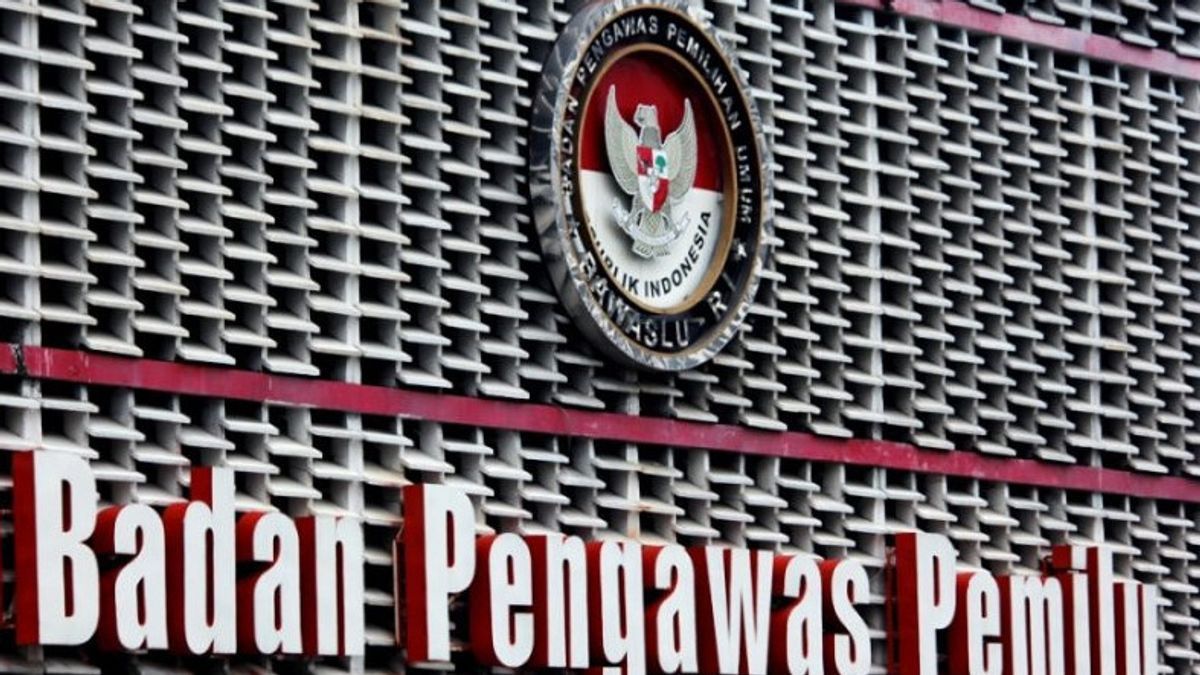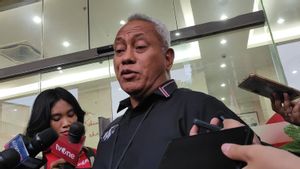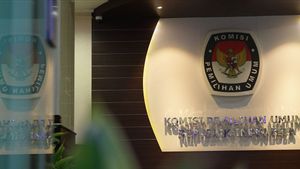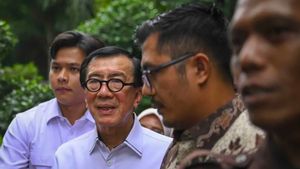JAKARTA - Head of the Anies-Muhaimin National Law Team (AMIN) Ari Yusuf Amir said that his party had made a legal analysis regarding President Joko Widodo's statement that the president could campaign and take sides in the election.
This legal analysis was submitted by the AMIN National Team to the Election Supervisory Body (Bawaslu) and the General Elections Commission (KPU) to be traced by the election organizers.
"We have made a legal analysis. We have submitted the legal analysis to Bawaslu to the KPU as well. We regret that attitude. Well, it's just a matter of how the KPU and Bawaslu take a stand," said Ari in Palembang, Thursday, January 25.
From this analysis, Ari is worried that if Jokowi really goes down the mountain to try to win one of the presidential and vice presidential candidates, it will damage political stability in Indonesia.
This is because Ari is worried that this partiality will be followed by state officials such as ASN, TNI, and Polri who should be neutral.
"If they took sides, it would be chaos, what? You can imagine if later ASN, TNI, Polri sided with one of the candidate pairs, then the other candidate pair did not believe, did not believe them, how would they maintain social order in the community?" said Ari.
The legal analysis was previously explained by the Spokesperson for the National Team for Winning Anies-Muhaimin (AMINAn National Team) Iwan Tarigan.
Iwan views that this statement raises concerns over Jokowi's abuse of power as head of state. This happens in the form of policies or decisions that lead to the benefits of one of the election participants.
"If the president's actions are contrary to the provisions of the legislation, it can be categorized as an act beyond the authority. The president can also be categorized as acting arbitrarily if the decision or action is carried out without the basis of authority and/or contrary to a court decision with permanent legal force," Iwan said in his statement.
SEE ALSO:
Iwan explained that the abuse of the president's authority as head of state as well as head of government in elections could be categorized as mixing authority, as referred to in Article 17 paragraph (2) letter b of Law Number 30 of 2014 concerning Government Administration.
"The act of mixing authority can be in the form of actions taken by government agencies / officials outside the scope of the field or material of authority given and / or contrary to the objectives of the authority given," said Iwan.
Although there are no rules that prohibit the president from taking sides and campaigning, Iwan said there are rules that can be interpreted as demands for the president to be neutral in the election.
The regulation, namely Article 48 paragraph (1) letter b of the Election Law, stipulates that the KPU reports to the DPR and the president regarding the implementation of the tasks of organizing all stages of elections and other tasks.
In addition, Article 22 paragraphs (1) and (2) of the Election Law stipulates that the president plays a role in forming the membership of the selection team in determining the candidates for KPU members to be submitted to the DPR. Thus, the president is required to be neutral during the election process.
"If the president's alignment is manifested in the form of a certain policy or decision by using state facilities or using his power to win one of the particular election participants, then this action has the potential to become an abuse of authority," he said.
The English, Chinese, Japanese, Arabic, and French versions are automatically generated by the AI. So there may still be inaccuracies in translating, please always see Indonesian as our main language. (system supported by DigitalSiber.id)


















